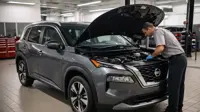US lawmaker urges scrutiny of Amazon-Whole Foods deal
15 Jul 2017
A member of the US House of Representatives is urging fellow lawmakers to take a closer look at Amazon and its $14-billion bid to buy Whole Foods, asking Congress to hold a hearing to analyse Amazon's proposal as critics say the merger could cramp innovation and hurt workers.
The deal could affect grocery stores and consumers nationwide, Representative David Cillicine (D-R.I.), the top Democrat on the House subcommittee on regulatory reform, commercial and antitrust law, warned on Thursday in a statement which said, ''Congress has a responsibility to fully scrutinise this merger before it goes ahead. Failing to do so is a disservice to our constituents.''
In a letter submitted to the panel's Republican leadership, which sets the committee's hearing schedule, Cillicine highlighted concerns about Amazon's dominance in online retail and the potential for the ecommerce giant to use its control over Whole Foods to unfairly disadvantage other businesses.
''This transaction occurs during a long period of economic concentration that has already caused a decline in workers' wages and mobility,'' the congressman wrote, ''essentially allowing a small number of monopolists to hoard the 'fruit of economic growth.' ''
Last month, Amazon.com Inc said it would buy US supermarket chain Whole Foods Market Inc for $13.7 billion, entering the brick-and-mortar store space in a move that could turn the high-end grocer into a mass-market merchant and further shake up the US retail industry. (See: Amazon to by Whole Foods, sends jitters thru US grocery market)
Amazon declined to comment on the issues raised by Cillicine, who is not the only member of Congress to call for a close examination of the deal. Rep. Ro Khanna (D-Calif), who represents a district in Silicon Valley, told CNBC last month that the acquisition would ''hurt local grocery stores''.
Amazon's purchase must be approved by federal regulators - most likely at the Federal Trade Commission - before it can proceed. But according to The Washington Post, antitrust experts differ on whether the acquisition should raise red flags. Historically deals involving companies in separate industries have gotten a pass, particularly if they are likely to lead to lower prices. Amazon has made a business out of price competition and proved a willingness to take financial losses.
In 2013, Amazon settled an antitrust lawsuit filed by publishers, including HarperCollins, Hachette and Penguin, who accused Amazon of price fixing on e-books.
Still, some opponents of consolidation acknowledge that the Amazon-Whole Foods deal may be hard for regulators to reject. In terms of the overall grocery industry, Whole Foods controls just single-digit percentages of the market - and Amazon, even less. But critics of the deal argue that regulators should view the acquisition in the broader context of e-commerce, not merely grocery stores, the WP report adds.




















